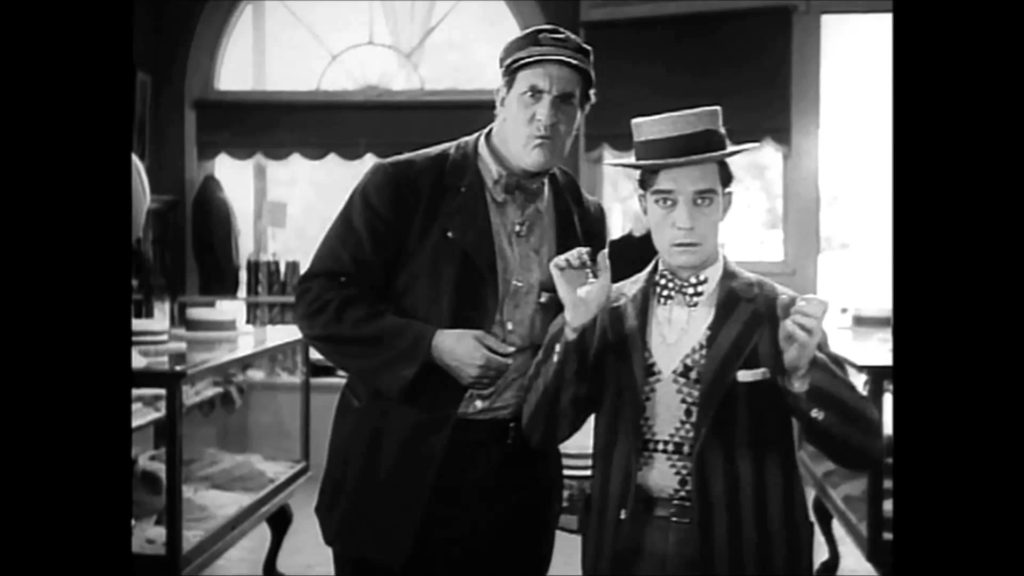
Every year, through the sponsorship of the Stanford Theatre Foundation, Cinequest presents a silent film. This year’s choice is Buster Keaton’s Steamboat Bill, Jr.
Keaton plays a wimpy young man returning home from college to help his father, who operates an old-fashioned and weathered paddle steamer. The father is burly and testosterone-fueled – and immediately aghast at his effete and callow son. The business is threatened by competition from a magnate’s newer, more well-equipped riverboat. Comic situations ensue from the business rivalry, a Romeo-and-Juliet subplot and the odd couple pairing of father and son.
But it’s all just the launching pad for Keaton’s comic genius, with its irresistible combination of deadpan slapstick and daring physical stunts. Steamboat Bill, Jr. contains one of the greatest movie stunts EVER – and one of the most dangerous – the entire front of a house blows over but fails to crush Buster because he emerges from a window opening.
Steamboat Bill, Jr. came in 1928 near the end of Keaton’s greatest work: Sherlock, Jr. (1924), The Navigator (1924), Seven Chances (1925), The General (1926) and The Cameraman (1928). After The Cameraman, Keaton’s new studio took away his creative control, and his career (and personal life) crashed.
I also recommend Peter Bogdanovich’s fine 2018 biodoc of Keaton, The Great Buster: A Celebration. It’s not yet streamable, but I expect it to be available soon.
Cinequest presents its silent films on the big screen of a period movie palace, the California Theatre, accompanied by world-renowned Dennis James on the Mighty Wurlitzer organ. James traveled with Lillian Gish as accompanist when she would present movies. I recommend Sal Pizarro’s excellent profile of Dennis James in the Mercury News.
Cinequest will present Steamboat Bill, Jr. along with the 20 minute Keaton short The High Sign (which I haven’t yet seen).
